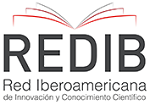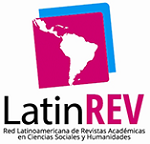Editor-in-Chief

Zulmary Carolina Nieto Sánchez, PhD ORCID, CVLAC, Google Scholar
Functions Editor-in-Chief
The Editor-in-Chief reports to the Publications Committee of the publishing institution. He/she makes recommendations and takes measures to increase the dissemination and impact of the scientific journal. He/she supervises subordinate editors and associated staff and support staff of the scientific journal. The Editor-in-Chief has responsibility to authors who provide journal content, to peer reviewers who comment on the suitability of manuscripts for publication, to the journal's readership and to the scientific community at large, to the journal's publishing institution, to its staff, and to the general public.
Profile and Duties
Possess general scientific knowledge of the fields covered by the journal and have proven competencies in scientific writing and editing, science evaluation, negotiation and diplomacy.
To publish original, relevant, methodologically sound, well-documented, and peer-reviewed articles on the full range of scientific topics of interest to the journal's readership.
Publish the journal on time, preferably in continuous publication mode.
Establish and update editorial policies for: - Manuscript submission, standards for authors, and ethical principles of publication. - Time standards by stages of the editorial process and quality controls to be applied in the different stages of the editorial process. - Peer review process, evaluation and editorial decision; as well as methods for reconsideration of rejected manuscripts. - Identify and select topics for future calls for papers and special issues. - Determination of conflict of interest and intellectual property. - Handling ethical issues, such as complaints and findings of scientific misconduct or malpractice.
Communicating updates to publication policies and guidelines (e.g., author instructions, reviewer instructions, ethical guidelines, reports) to the Publications Committee of the publishing institution.
Provides the Publications Committee of the publishing institution with reports, makes requirements, and proposes an improvement plan with indexing strategies for the journal.
Ensures maximum visibility of the journal, ensuring its indexing in institutional and international repositories. Submits the journal to international indexing and full-text content systems.
Ensure that the technological support of the journal allows it to operate with security, stability and good response times, having backup and digital preservation policies.
Presiding at the meetings of the Editorial Team (associate editors, Editorial Committee, Scientific Committee, Executive Committees and support staff).
Receiving and responding to complaints from those involved in the publishing process.
Formulates and executes the annual budget of the Journal, according to the Publications Committee of the publishing institution.
Represents the Editorial Committee in negotiations before the entities of the publishing institution, ad hoc governmental agencies and international organizations, as well as before the community of scientific publishers.
EDITORIAL FREEDOM: The Editor-in-Chief shall have full authority to determine the content of the journal in all aspects of the scientific content to be published.
TERM OF EDITOR: Editors-in-Chief are appointed by the Publications Committee of the publishing institution for a defined number of years. This term may be renewed at the discretion of the Committee.
EDITORIAL ETHICS: The editor's code of conduct will be determined by the recommendations of the Council of Science Editor, and in particular by the: White Paper on Publication Ethics.






